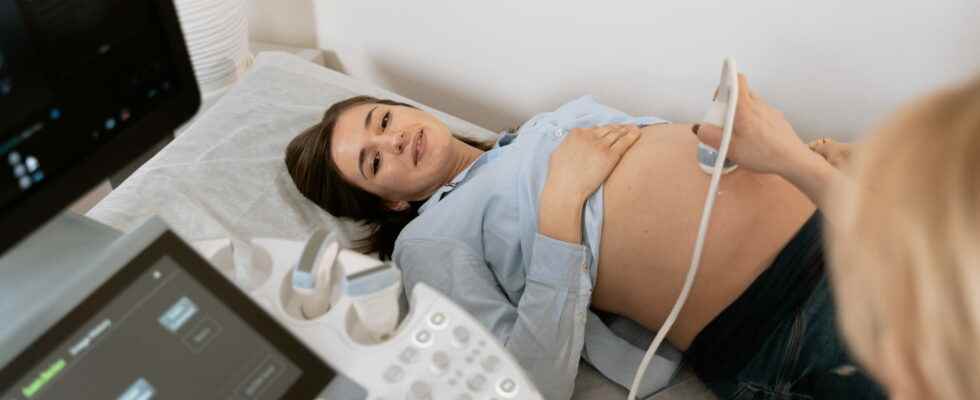Moisturizing cream to avoid, pee break, administrative papers… Here’s how to best prepare for your arrival at the sonographer, especially if it’s your first appointment with baby.
Three ultrasounds are strongly recommended during pregnancy, each trimester, to check the proper development of the fetus. If this is your first pregnancy ultrasound performed during the very first trimester of pregnancy, here are some things to know in order to prepare for your visit to the sonographer. Remember that it is not necessary to be fasting. On the other hand, certain details will allow the practitioner to better visualize the details on the screen.
1 – Drink and pee well before arriving
It is essential to stay hydrated throughout the pregnancy, and particularly the days preceding your ultrasound, as this could influence the amount of amniotic fluid, and thus facilitate observation of the foetus. On the other hand, so that the sonographer can have a clear image, you will need to empty your bladder before the test. Go to the toilet just before leaving home, or as soon as you arrive at the specialist.
2 – Do not apply moisturizing cream or oil on your stomach
Forget stretch mark creams, moisturizing oils and belly creams. Indeed, they penetrate the skin and remain impregnated for days or even weeks before your appointment with the sonographer. Result: the latter does not manage to obtain a clear image on the screen and must sometimes pass through the vagina to better observe the baby.
The probe he uses emits ultrasound (without danger for the baby) which crosses the skin of the belly of the future mother. Greasy creams would then risk limiting the ultrasound. The sonographer also uses a gel which is in fact gelled water at a temperature of 20°C. By being placed on the mother’s belly (at 37°C) the gel becomes more liquid and accelerates the sound which reaches the water bag.
► It is therefore recommended to use a neutral soap, to wash (the belly) for the next ultrasounds. You can for example use Marseille soap, and then add nothing. But nothing prevents you from applying a cream or any other shower gel to your legs, arms and the rest of your body.
3- Bring your last exams
Don’t forget to bring all your previous exams: ultrasounds, your blood or urine tests, your trisomy 21 screening result, or any other examination necessary for your health monitoring. You will also need to bring your vital card as well as a means of payment to pay the practitioner, while waiting to be partially reimbursed by health insurance and your mutual.
4 – Remove your navel piercing
Same principle: a piercing could interfere with the probe during the ultrasound. So remember to remove it if you wear one.
